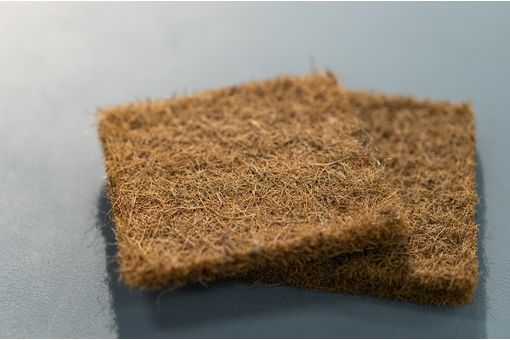Interviews
We can ensure sustainable chain from fibre to apparel - Chairman, AEPC
28 Nov '08
3 min read
Minister of state for textiles E.V.K.S. Elangovan today called upon the industry to use cost-effective and energy-efficient technologies for encouraging sustainable development.
The ill effects of global warming and consequent climate change have already started affecting people of all geographical regions, he said. Climate change has huge implications on the lives of people as it adversely impacts essential requirements like food production, water resources, health and energy security.
"This very important issue can be addressed only by adopting sustainable technologies and promoting conservation of scarce natural resources," said Mr Elangovan while addressing an international conference titled 'Sustainability of Textile Fashion Industry Chain: Crop to Shop.'
Indian textile and apparel industry has an overwhelming presence in the country's economic life. "The industry's size and extensive use of raw materials and chemicals make it mandatory to adopt technologies that are environmentally sustainable," said the minister.
The textile and clothing sector contributes about 14 per cent to industrial production, 17 per cent to export earnings and 4 per cent to the GDP besides providing direct employment to about 35 million people, making it the second largest provider of employment after agriculture.
With 16 per cent of the global population, India's share of carbon dioxide emissions is only 3.11 per cent. "Our ambitious development programmes and consistent growth are likely to increase our share of global carbon dioxide emissions," said Mr Elangovan.
Speaking on the occasion, chairman of the Apparel Export Promotion Council (AEPC) Rakesh Vaid said the industry is considered environment-friendly due to its relatively low-emission levels. He said a strong international market in carbon trading is evolving which can become the largest commodity market and be leveraged for better policy making.
"The industry needs to proactively work towards a sustainable supply chain," said Mr Vaid. Cotton waste recycling, low carbon manufacturing programmes, carbon accounting in factories, carbon footprint calculation projects, benchmarking energy consumption across the textile and apparel supply chain are some issues that need to be done on private-public partnership mode, he said.
"Being one of the few countries with an integrated supply chain in place, India can ensure a sustainable chain from fibre to apparel." Mr Vaid, however, candidly admitted that production strategies have not incorporated sustainable production systems or alternatives so far.
"Eco-friendly clothing is small part of the branded apparel market, that too as a positioning strategy. Green manufacturing and recycled materials will be a short-term trend unless specific standards are set."
The conference was organised by the Pearl Academy of Fashion and North India Section of Textile Institute with the AEPC as the main sponsor.
The ill effects of global warming and consequent climate change have already started affecting people of all geographical regions, he said. Climate change has huge implications on the lives of people as it adversely impacts essential requirements like food production, water resources, health and energy security.
"This very important issue can be addressed only by adopting sustainable technologies and promoting conservation of scarce natural resources," said Mr Elangovan while addressing an international conference titled 'Sustainability of Textile Fashion Industry Chain: Crop to Shop.'
Indian textile and apparel industry has an overwhelming presence in the country's economic life. "The industry's size and extensive use of raw materials and chemicals make it mandatory to adopt technologies that are environmentally sustainable," said the minister.
The textile and clothing sector contributes about 14 per cent to industrial production, 17 per cent to export earnings and 4 per cent to the GDP besides providing direct employment to about 35 million people, making it the second largest provider of employment after agriculture.
With 16 per cent of the global population, India's share of carbon dioxide emissions is only 3.11 per cent. "Our ambitious development programmes and consistent growth are likely to increase our share of global carbon dioxide emissions," said Mr Elangovan.
Speaking on the occasion, chairman of the Apparel Export Promotion Council (AEPC) Rakesh Vaid said the industry is considered environment-friendly due to its relatively low-emission levels. He said a strong international market in carbon trading is evolving which can become the largest commodity market and be leveraged for better policy making.
"The industry needs to proactively work towards a sustainable supply chain," said Mr Vaid. Cotton waste recycling, low carbon manufacturing programmes, carbon accounting in factories, carbon footprint calculation projects, benchmarking energy consumption across the textile and apparel supply chain are some issues that need to be done on private-public partnership mode, he said.
"Being one of the few countries with an integrated supply chain in place, India can ensure a sustainable chain from fibre to apparel." Mr Vaid, however, candidly admitted that production strategies have not incorporated sustainable production systems or alternatives so far.
"Eco-friendly clothing is small part of the branded apparel market, that too as a positioning strategy. Green manufacturing and recycled materials will be a short-term trend unless specific standards are set."
The conference was organised by the Pearl Academy of Fashion and North India Section of Textile Institute with the AEPC as the main sponsor.
Apparel Export Promotion Council
Popular News
Leave your Comments
Editor’s Pick
































-Ltd..jpg?tr=w-120,h-60,c-at_max,cm-pad_resize,bg-ffffff)





.jpg?tr=w-120,h-60,c-at_max,cm-pad_resize,bg-ffffff)
.jpg?tr=w-120,h-60,c-at_max,cm-pad_resize,bg-ffffff)






